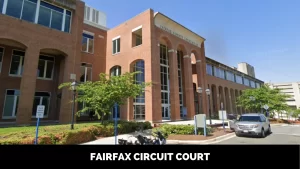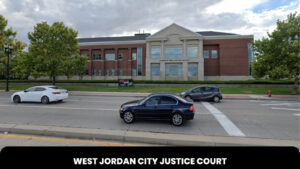1st Circuit Courts in Maryland
Introduction
The 1st Circuit Courts in Maryland play a crucial role in the state’s judicial system. These courts are responsible for handling a variety of legal matters, from civil disputes to criminal trials. In this article, we will explore the structure, jurisdiction, and functions of the 1st Circuit Courts in Maryland, including the types of cases they handle, the roles of judges and court staff, and the resources available to those involved in legal matters.
What is the 1st Circuit Court?
The 1st Circuit Court is one of the twelve Circuit Courts in Maryland. These courts are the trial courts of general jurisdiction, meaning they can hear any type of case that is not exclusively within the jurisdiction of another court.
Jurisdiction
The 1st Circuit Court’s jurisdiction covers four counties in Maryland: Dorchester, Somerset, Wicomico, and Worcester. Each of these counties has its own Circuit Court location.
Structure
The structure of the 1st Circuit Court consists of multiple judges who are appointed to serve the needs of the four counties within the circuit. Each judge has their own docket of cases to handle.
1st Circuit Court Locations in Maryland
The 1st Circuit Court has locations in the following Maryland counties:
- Dorchester County Circuit Court
- Somerset County Circuit Court
- Wicomico County Circuit Court
- Worcester County Circuit Court
The Role of 1st Circuit Court Judges
Selection Process
Judges in the 1st Circuit Court are appointed by the Governor of Maryland with the approval of the State Senate. They serve 15-year terms and may be reappointed. Once appointed, they must stand for election in the first general election after their appointment.
Responsibilities
1st Circuit Court judges are responsible for presiding over a wide range of cases, including civil, criminal, family, and juvenile matters. They ensure that trials are conducted fairly and according to the law and are responsible for making legal decisions and rulings based on the facts and evidence presented.
Types of Cases Handled by the 1st Circuit Court
Civil Cases
Civil cases in the 1st Circuit Court involve disputes between individuals or organizations. These may include contract disputes, personal injury claims, and property disputes.
Criminal Cases
Criminal cases involve the prosecution of individuals accused of committing crimes. The 1st Circuit Court handles felony cases, as well as some misdemeanor cases.
Family Law Cases
Family law cases include matters related to divorce, child custody and support, and adoption.
Juvenile Cases
Juvenile cases involve minors who have been accused of committing delinquent acts or who are in need of supervision or protection.
The Appeals Process in the 1st Circuit Court
If a party is not satisfied with the decision of the 1st Circuit Court, they have the right to appeal the decision to a higher court, usually the Maryland Court of Special Appeals. The appeals process involves a review of the case by a panel of judges, who will determine whether any legal errors were made during the trial. If errors are found, the case may be sent back to the Circuit Court for a new trial or other remedies.
The Role of Court Staff
Court staff play a critical role in ensuring the smooth functioning of the 1st Circuit Court. Key staff members include:
- Clerk of the Court: The Clerk of the Court is responsible for maintaining court records, processing legal documents, and providing assistance to judges and the public.
- Court Reporter: The Court Reporter creates a verbatim transcript of court proceedings, which may be used in the appeals process.
- Bailiff: The Bailiff is responsible for maintaining order in the courtroom and ensuring the safety of all participants.
- Law Clerks: Law Clerks assist judges with legal research and drafting opinions.
Courtroom Etiquette and Procedures
When attending a court session in the 1st Circuit Court, it’s important to follow proper courtroom etiquette and procedures:
- Arrive on time and dressed appropriately.
- Silence electronic devices and avoid making noise during the proceedings.
- Address the judge as “Your Honor” and stand when speaking.
- Do not interrupt the judge or other parties when they are speaking.
- Follow all instructions given by the judge or court staff.
Legal Resources and Assistance
For individuals who require legal assistance or resources, there are several options available:
- Maryland Legal Aid: Provides free civil legal services to low-income residents of Maryland.
- Maryland Volunteer Lawyers Service: Offers pro bono legal services to individuals who cannot afford a private attorney.
- Maryland Courts Self-Help Centers: Provide free walk-in assistance and information for individuals representing themselves in court.
How to Access Court Records
Court records for the 1st Circuit Court are maintained by the Clerk of the Court. Many records are available online through the Maryland Judiciary Case Search website, while others may require a visit to the Clerk’s office in person. To request copies of court records, contact the appropriate Clerk’s office in the county where the case was heard.
Conclusion
The 1st Circuit Courts in Maryland serve a crucial role in the state’s judicial system, handling a wide range of cases across four counties. By understanding the structure, jurisdiction, and roles of judges and court staff, as well as the resources available to those involved in legal matters, individuals can better navigate the complexities of the court system.
FAQs
- What is the difference between Circuit Courts and District Courts in Maryland? Circuit Courts are trial courts of general jurisdiction, while District Courts have limited jurisdiction and handle cases such as traffic violations, landlord-tenant disputes, and small claims.
- How are judges in the 1st Circuit Court appointed? Judges are appointed by the Governor of Maryland with the approval of the State Senate and serve 15-year terms.
- Can I represent myself in the 1st Circuit Court? Yes, individuals have the right to represent themselves in court, but it is highly recommended to seek legal assistance due to the complexity of the legal system.
- How do I find out the status of my case in the 1st Circuit Court? You can search for your case on the Maryland Judiciary Case Search website or contact the appropriate Clerk’s office in the county where your case is being heard.
- Where can I find legal assistance for my case in the 1st Circuit Court? Legal assistance can be found through Maryland Legal Aid, Maryland Volunteer Lawyers Service, or Maryland Courts Self-Help Centers. These organizations offer free or low-cost legal assistance to individuals who cannot afford a private attorney.




